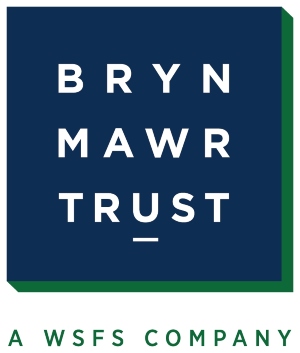Bryn Mawr Trust Survey Reveals Gaps Exist in Americans’ Digital Asset Awareness, Estate Planning

According to a new survey from Bryn Mawr Trust, Americans have little awareness about the importance of digital estate planning, despite placing a high monetary value on their digital assets. The survey found that Americans estimate a value of $191,516 on average for digital assets; however, 76 percent reported having little or no knowledge of digital estate planning.
The data also uncovered opportunities for financial advisors to bring these assets to the attention of their clients, with only 44 percent of respondents with advisors stating their advisor had addressed digital assets and digital estate planning with them.
The survey of 1,500 U.S. adults — half of which were from a nationally representative sample and half classified as high-net-worth (HNW) individuals with a household income of $175,000 or higher — gauged the knowledge base and preparation Americans are taking to manage their digital assets.
The State of Digital Assets
The survey identifies digital assets as including personal records, videos, social media content, passwords, biometric data, and financial information. When asked to assign monetary values to these assets, financial data, biometric information, and business accounts ranked highest for both groups. Despite recognizing the importance of digital asset security — 55 percent of HNW respondents express concern about their digital assets — 45 percent of the same respondent pool have never heard of digital estate planning.
Unsurprisingly, respondents indicated that the number of digital devices and assets they possess continues to grow. However, while Americans are generally aware of the sheer volume of their digital presence, there is a lack of familiarity with the concept of “digital assets,” and even more so when considering how these assets fit into estate planning.
On average, respondents reported having up to 250 digital accounts, with 37 percent indicating they have between one and 10 accounts, 29 percent having between 11-100 accounts, six percent having between 101 and 250 accounts, and eight percent responding that they have more than 250 accounts.
“Overall, the survey’s findings underscore the significant role digital assets play in our lives,” said Jamie Hopkins, Chief Wealth Officer for WSFS Bank and Bryn Mawr Trust. “Notably, 30 percent of respondents indicated they have more than 30,000 digital files. But perhaps one of the most concerning findings is that nearly a third (32 percent) of Americans are unsure of how many digital files they possess, highlighting widespread uncertainty surrounding digital assets in the U.S., especially in light of how much value Americans place on their digital assets with an average of $191,516 and HNW individuals almost five times that number.”
Knowledge and Preparation Gaps
The survey reveals a significant gap in the understanding of digital asset estate planning among Americans. While many respondents can identify their digital devices and some can identify digital assets, their understanding of their value and preparedness for integrating these assets into estate planning varies widely. Only 29 percent of Americans feel “very/somewhat knowledgeable” about digital assets, while about a fifth (21 percent) report having only “a little knowledge.” Over a quarter (27 percent) have heard of “digital assets” but know little about it, and 15 percent have never heard of the term at all.
“We live in a digital world where much of our lives are connected to online and digital platforms,” said Hopkins. “Traditional storefronts have been replaced by online storefronts, our payments are mostly digital, our family photo albums are now online, and even how we communicate with others has become increasingly digital with instant messaging and email. However, there is a general lack of familiarity with digital asset planning and the crucial role it plays in our personal and financial security. Consumers should start thinking about their digital presence more strategically and approach their financial advisor and estate planner with the right questions to prepare accordingly.”
Planning Ahead
Digital estate planning remains unfamiliar to many Americans, despite its significance in securing digital assets. The survey findings show that 79 percent of Americans believe it is important to protect their digital assets, similar to the 78 percent who feel the same about financial assets.
“While it may not be top of mind for many, our digital assets are a significant part of our lives and the legacy we leave behind,” said Steven Klammer, Senior Vice President and Senior Wealth & Trust Advisor at Bryn Mawr Trust. “Over time, many of us have accumulated thousands of digital files, some containing sensitive and valuable information. Understanding how to secure and transfer these important assets should be an integral part of estate planning.”
Despite the importance of these issues, only 32 percent of national respondents shared that they currently have an estate plan. Among those with estate plans, 75 percent of Americans report that their planning is up to date, and 22 percent have updated their estate plans in the past year. The survey also revealed that 67 percent of respondents have a will in place.
However, when digging deeper into the contents of those plans, only 53 percent of Americans have wills that specify their wishes for digital assets. Notably, 39 percent of Americans have never heard of the term “digital estate planning,” and only 15 percent consider themselves very or somewhat knowledgeable on the subject.
“The good news is that most Americans are planning for a future after they’re gone, but digital estate planning remains a topic many are unfamiliar with, and one that some financial advisors may overlook,” said Klammer. “It’s crucial to work with experts who consider all aspects of our lives, including our digital presence, when planning our legacies. To better prepare for digital estate planning, individuals should take actionable steps, such as listing their digital assets and discussing their valuation with a financial advisor. It is crucial to ensure that digital assets are incorporated into overall estate planning documents, including wills and trusts.”
Take a deeper dive into the survey’s results and read the full report at Bryn Mawr Trust.
Connect With Your Community
Subscribe to stay informed!
"*" indicates required fields
















































![95000-1023_ACJ_BannerAd[1]](https://vista.today/wp-content/uploads/2023/03/95000-1023_ACJ_BannerAd1.jpg)



